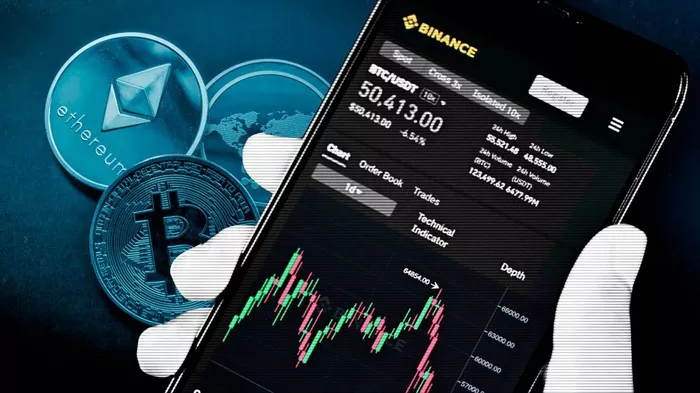Trading futures after-hours provides opportunities for investors and traders to react to market-moving events outside of regular trading hours. It allows for greater flexibility and responsiveness, especially in global markets where news and events can impact prices overnight. This article explores the types of futures available for after-hours trading, the benefits and challenges of trading during extended hours, and important considerations for traders looking to participate in this aspect of the futures market.
Understanding After-Hours Trading
After-hours trading refers to the period outside of regular market hours when investors can buy and sell securities. In the context of futures trading, this typically extends beyond the official trading hours of major exchanges like the Chicago Mercantile Exchange (CME) or Eurex. While futures markets generally have more limited after-hours trading compared to equities, there are still significant opportunities available.
Types of Futures Tradable After-Hours
Futures contracts available for trading after-hours vary depending on the exchange and the specific contract. Here are some common types:
1. E-mini Futures: These are electronically traded futures contracts that are smaller in size than standard futures contracts. E-mini contracts are available for various indices such as the S&P 500, NASDAQ-100, and Dow Jones Industrial Average.
2. Energy Futures: Futures contracts for crude oil (WTI and Brent), natural gas, and heating oil are often available for trading after-hours. These commodities are influenced by global supply and demand factors, geopolitical events, and economic data releases that occur outside regular trading hours.
3. Currency Futures: Major currency pairs like the Euro/US Dollar (EUR/USD), Japanese Yen/US Dollar (JPY/USD), and British Pound/US Dollar (GBP/USD) can be traded after-hours. Currency futures are impacted by international economic news, central bank announcements, and geopolitical developments that may occur overnight.
4. Interest Rate Futures: Contracts based on interest rates, such as Treasury bonds and notes, are tradable after-hours. These futures react to economic indicators, inflation data, and monetary policy decisions made by central banks outside regular trading hours.
5. Commodity Futures: Agricultural products (e.g., corn, soybeans, wheat), metals (e.g., gold, silver, copper), and other commodities have futures contracts that are available for trading after-hours. These markets are influenced by global supply and demand dynamics and weather patterns that can change overnight.
Benefits of Trading Futures After-Hours
Trading futures after-hours offers several advantages for investors and traders:
React to Global Events: Markets outside of the United States can significantly impact futures prices overnight. Trading after-hours allows participants to react to news and events that occur during non-U.S. trading hours.
Extended Trading Opportunities: Investors who are unable to trade during regular hours due to work or other commitments can participate in after-hours trading sessions, extending their trading day.
Volatility Opportunities: Price movements in futures markets can be more volatile during after-hours sessions, presenting opportunities for traders to capitalize on short-term price swings.
Hedging: Businesses and institutional investors use after-hours trading to hedge against overnight risks, such as currency fluctuations or changes in commodity prices.
See Also: How Many Futures Exchanges Are There in the World?
Challenges of Trading Futures After-Hours
While after-hours trading offers benefits, it also comes with challenges that traders should consider:
Reduced Liquidity: Trading volumes are generally lower during after-hours sessions compared to regular trading hours, which can lead to wider bid-ask spreads and increased price volatility.
Limited Market Access: Not all futures contracts are available for after-hours trading, and trading hours may vary between exchanges and brokers. It’s essential to check specific market hours and contract availability.
Price Gaps: Futures prices can gap up or down significantly when markets reopen after-hours, especially in response to news events. This can result in slippage and unexpected trading outcomes.
Higher Risk: The combination of reduced liquidity and increased volatility can amplify risk for traders, potentially leading to larger-than-expected losses or difficulty executing trades at desired prices.
Considerations for Trading After-Hours
Before participating in after-hours trading, consider the following factors:
Research and Preparation: Stay informed about market-moving events and economic data releases scheduled outside regular trading hours. Conduct thorough research and have a trading plan in place.
Risk Management: Use risk management strategies, such as setting stop-loss orders and position sizing, to protect your capital and manage risk effectively during after-hours trading.
Broker and Platform Compatibility: Ensure that your broker supports after-hours trading for the futures contracts you are interested in. Familiarize yourself with the trading platform’s functionalities and order execution processes.
Stay Disciplined: Stick to your trading plan and avoid making impulsive decisions based on short-term price movements. After-hours trading requires discipline and patience to navigate effectively.
Conclusion
After-hours trading in futures markets provides opportunities for investors and traders to react to global events and market developments outside regular trading hours. While it offers benefits such as extended trading opportunities and the ability to hedge against overnight risks, it also presents challenges related to liquidity, volatility, and market access. Traders should conduct thorough research, practice risk management, and stay disciplined when participating in after-hours trading to optimize their trading outcomes. By understanding the types of futures available for after-hours trading and considering the associated risks and opportunities, traders can make informed decisions and enhance their trading strategies in the dynamic world of futures markets.


